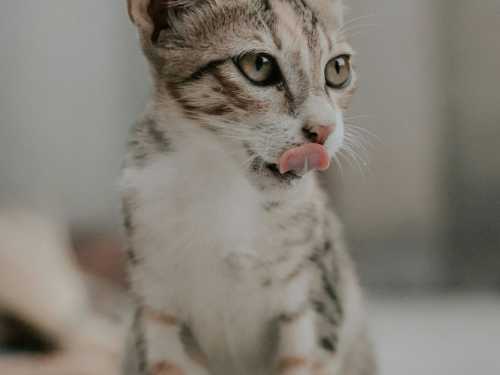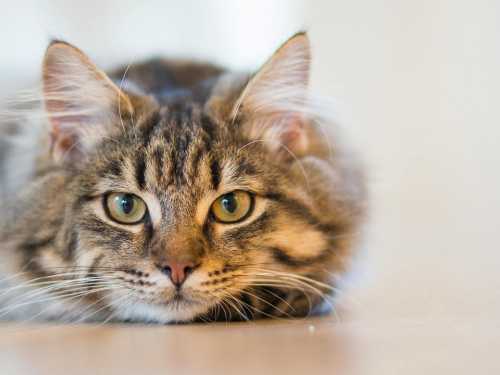
Should we treat cats to dairy products, such as cottage cheese? In nature, adult cats do not drink milk, but our pets are often interested in such treats.
At the same time, their digestive system is very sensitive: kittens produce the enzyme lactase, which helps digest their mother's milk, but its amount decreases sharply with age. That is why most adult animals develop intolerance to lactose, the milk sugar found in dairy products.
In addition, cow's milk is very different in composition from cat's milk, so it cannot replace a full-fledged diet for a cat.
So is cottage cheese good for cats, or is it better to avoid it in their diet? Let's try to figure it out.
The composition of fermented milk cheese and its effect on the health of cats
Cottage cheese contains protein and calcium, which are good for muscles and bones, but this amount is not enough to cover a cat's daily needs.
Although cheese contains less lactose than milk due to fermentation, even a small amount can be enough to cause stomach upset in sensitive cats.
Cheese is also not a reliable source of probiotics. Unlike some live-culture yogurts or specialized veterinary supplements, the amount of beneficial bacteria in cheese can be negligible, especially after heat treatment.
Risks of Feeding Cats Cottage Cheese
The main risks are related to lactose intolerance, which can cause digestive disorders (diarrhea, bloating). Symptoms can lead to dehydration, especially in weakened animals.
Additionally, cheese contains phosphorus. Healthy animals need it, but too much of it can put a dangerous strain on the kidneys, especially in cats with chronic kidney disease, a common condition among older pets.
When can you give a cat cottage cheese and in what quantity?
Cottage cheese is only an occasional treat, not part of a daily diet. If given too often, it can upset the nutritional balance of your cat's diet. If your cat tolerates cheese well and has no digestive problems, you can give him 1-2 teaspoons no more than once or twice a week.
Important: choose only natural low-fat cottage cheese (excess fat can cause digestive disorders, and in animals prone to this, it can become one of the risk factors for pancreatitis (inflammation of the pancreas)), without salt, sugar, sweeteners, fruits and other additives, as many of them can be harmful or even toxic to cats. The amount depends on the weight, age and general health of the cat: the smaller the animal, the more moderate the portion should be.
A general rule of thumb for any treat is that its calorie content should not exceed 10% of your pet's daily calorie intake. If you want to offer your pet a dairy treat, a safer alternative would be a special lactose-free cat milk or a teaspoon of natural yogurt or kefir without sugar or additives, which are often better tolerated due to their lower lactose content.
Why fermented milk cheese does not replace a complete diet
Cheese cannot replace a complete diet, as cats are obligate carnivores. This means that for their health, they need meat and nutrients that are only found in animal products. Their bodies need animal protein, which contains all the essential amino acids (such as taurine), as well as the right balance of vitamins and minerals.
All this can only be provided by high-quality industrial feed or a properly composed natural diet.
In conclusion
So, cottage cheese can be given to cats, but only as a rare treat and with caution. It is not toxic, but due to the lactose content it can cause digestive problems. Always choose a natural, low-fat product without additives and remember that a balanced diet is the basis of your pet's health.





